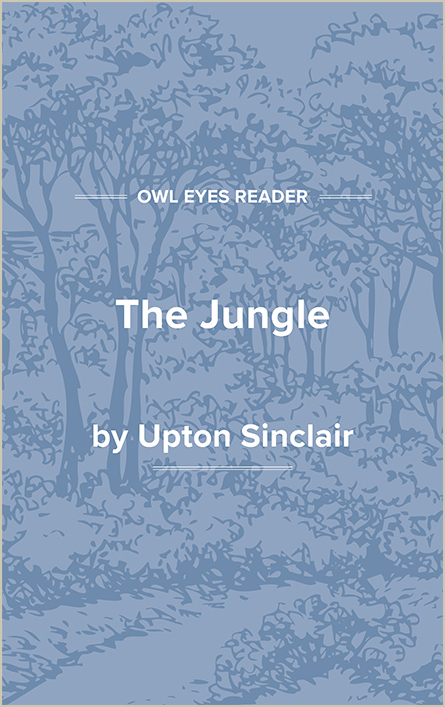Upton Sinclair Biography
Author Profile
Sinclair started writing while a student at the City College of New York, which he entered at the age of fifteen. His early novels include Springtime and Harvest (1902, retitled King Midas); Prince Hagen (1903); The Journal of Arthur Stirling (1903); Manassas (1904); and A Captain of Industry (1906). He is best known, however, for The Jungle (1906), a brutally graphic exposé of Chicago’s stockyards that led to the strengthening of federal food adulteration laws. True to his socialist beliefs, Sinclair invested the profits from this, his most successful book, in the Helicon Home Colony, a cooperative community in Englewood, New Jersey. Other early books included The Metropolis (1908); The Money-changers (1908); and the semi-autobiographical Love’s Pilgrimage (1911). In 1915 Sinclair moved to California, where he wrote such books as King Coal (1917); They Call Me Carpenter (1922); Oil! (1927); and Boston (1928), which addressed the case of Nicola Sacco and Bartolomeo Vanzetti, robbery and murder suspects who many believe were executed because of their anarchist beliefs.
When the first publisher of Oil! asked Sinclair to delete sections describing the extramarital affairs of one of his characters, Sinclair suggested a compromise: On pages from which objectionable passages were removed, large fig leaves were printed to suggest to readers what they were missing.
During the Depression Sinclair took an active role in California politics. In 1934 he formed EPIC (End Poverty in California), an alliance of progressives and the unemployed that took control of the state Democratic Party and nearly won him the governorship. After several other unsuccessful tries for public office, Sinclair returned to literary work in 1940 with the first of eleven novels tracing the career of a character named Lanny Budd from World War I to the Cold War. The third of these novels, Dragon’s Teeth (1942), won a Pulitzer Prize.
Bibliography
Bloodworth, William A. Upton Sinclair. Boston: Twayne, 1977. This short, sympathetic, yet balanced literary biography examines Sinclair’s place in American literary radicalism and the writer as social activist. Includes a bibliography.
Colburn, David R., and George E. Pozzetta, eds. Reform and Reformers in the Progressive Era. Westport, Conn.: Greenwood Press, 1983. Examines Sinclair’s position as a muckraker and his role in inspiring Progressive reforms. Unlike other journalistic writers, Sinclair was personally and ideologically committed.
Dell, Floyd. Upton Sinclair: A Study in Social Protest. New York: AMS Press, 1970. Dell’s treatment of Sinclair’s career analyzes the apparent discrepancy between his literary position in the United States and throughout the rest of the world. Personal incidents and psychological insights are intertwined with evaluations and interpretations of specific works. Contains a bibliography of out-of-print books and an index.
Harris, Leon. Upton Sinclair: American Rebel. New York: Thomas Y. Crowell, 1975. Traces Sinclair’s rise from obscurity to fame, with his subsequent decline in popularity. The text provides interesting information regarding source materials for some of his novels. A section of photographs, extensive notes, a list of Sinclair’s books, and an index complete the book.
Herms, Dieter, ed. Upton Sinclair: Literature and Social Reform. New York: Peter Lang, 1990. This is a collection of papers from the Upton Sinclair World Conference of July, 1988, at the University of Bremen. Includes bibliographical references.
Mitchell, Greg. The Campaign of the Century. New York: Random House, 1992. At 665 pages, this excellently researched book details Sinclair’s 1934 gubernatorial campaign from August to November, stressing the media’s key role in defeating Sinclair and ushering in a new era of media politics. Includes notes.
Mookerjee, R. N. Art for Social Justice: The Major Novels of Upton Sinclair . Metuchen, N.J.: Scarecrow Press, 1988. Mookerjee, a critic of writers of the 1930’s, provides a...
(The entire page is 1,138 words.)
Owl Eyes subscribers get unlimited access to our expert annotations, analyses, and study guides on your favorite texts. Master the classics for less than $5/month!

